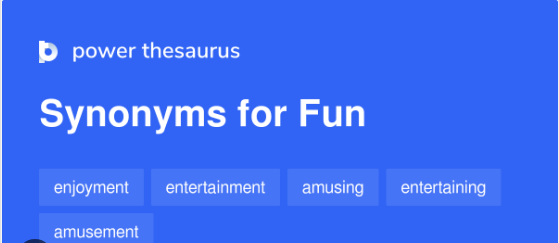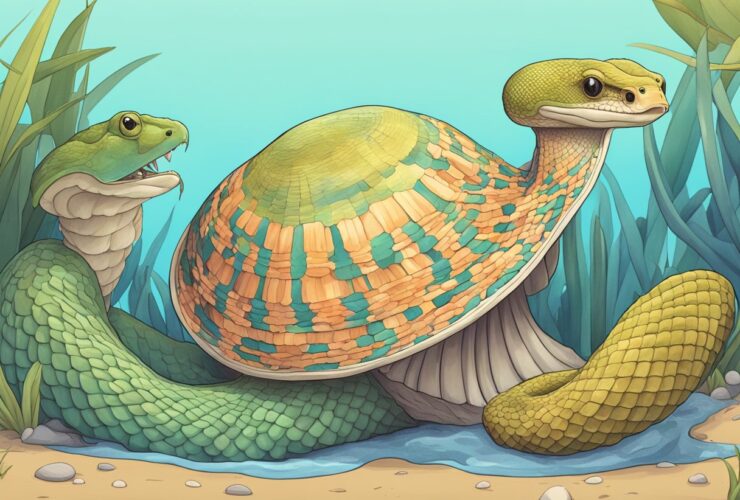Fun Synonym; Fun is an essential aspect of life that everyone should enjoy. Whether it’s engaging in leisure activities, attending social events, or simply spending time with friends and family, having fun is crucial for our physical, mental, and emotional well-being. However, finding the right words to describe the experience of having fun can be challenging. This is where fun synonyms come in handy.
Understanding synonyms is essential for effective communication. Synonyms are words that have the same or similar meaning to another word. They are useful when you want to avoid using the same word repeatedly or when you want to add variety to your writing or speech. Fun synonyms are words that describe the experience of having fun, such as enjoyment, pleasure, entertainment, and amusement. Knowing these synonyms can help you express yourself more effectively and make your writing or speech more engaging.
Fun synonyms are not only useful in everyday language but also in literature. Writers often use synonyms to add depth and richness to their writing. Using different fun synonyms can help writers create a more vivid and engaging reading experience for their audience. Moreover, fun synonyms can also help writers convey emotions and moods more effectively. For instance, instead of using the word “fun” repeatedly, a writer can use synonyms such as “delight,” “excitement,” or “thrill” to describe the experience of having fun in different ways.

Key Takeaways
- Understanding synonyms is essential for effective communication.
- Fun synonyms can add variety and richness to everyday language and literature.
- Using fun synonyms can help convey emotions and moods more effectively.
Understanding Synonyms
Definition and Importance
Understanding synonyms are words that have similar meanings as the word “understanding.” According to Merriam-Webster, there are 232 similar and opposite words to “understanding.” These synonyms can be used to avoid repetition and to make writing more interesting and varied.
Having a good understanding of synonyms can be important for effective communication. It allows individuals to express themselves more precisely and accurately, and to avoid misunderstandings. It can also be helpful for individuals who are learning English as a second language, as it can improve their vocabulary and comprehension.
Synonym Usage in English Language
Synonyms for “understanding” can be used in a variety of contexts, such as in literature, academic writing, and everyday conversation. Some common synonyms for “understanding” include “comprehension,” “grasp,” “awareness,” and “knowledge.”
In literature, authors often use synonyms to create more vivid and descriptive language. For example, instead of repeatedly using the word “understanding,” an author might use synonyms such as “insight,” “perception,” or “cognition” to convey a similar meaning.
In academic writing, synonyms can be used to avoid repetition and to make the writing more interesting. For instance, instead of using “understanding” multiple times in a paragraph, a writer might use synonyms such as “comprehension,” “insight,” or “awareness” to convey the same meaning.
In everyday conversation, synonyms can be used to clarify meaning and to avoid confusion. For example, if someone says they have an “understanding” of a topic, another person might ask for clarification by asking if they have “knowledge” or “comprehension” of the topic.
Overall, understanding synonyms can be an important skill for effective communication in a variety of contexts.
Fun Synonyms in Everyday Language
Fun is an essential part of everyday life. People engage in fun activities to unwind and relax after a long day or week. However, using the same word repeatedly can become monotonous and dull. Therefore, it is crucial to use synonyms to spice up your conversations and writing. This section explores commonly used fun synonyms and regional variations.
Commonly Used Fun Synonyms
There are numerous fun synonyms that people use in everyday language. Here are some of the commonly used ones:
- Amusement: This is a synonym for fun that is used to describe something that is entertaining and enjoyable. For example, watching a comedy show can be amusing.
- Entertainment: This is another synonym for fun that is used to describe activities that are enjoyable and engaging. For instance, going to the cinema can be a form of entertainment.
- Pleasure: This is a synonym for fun that is used to describe activities that bring joy and happiness. For example, eating your favourite meal can be a pleasurable experience.
- Recreation: This is a synonym for fun that is used to describe activities that are done for leisure and enjoyment. For example, playing a game of football can be a form of recreation.
Regional Variations
Fun synonyms vary from region to region. Here are some examples:
- Banter: This is a British English synonym for fun that is used to describe playful and light-hearted teasing between friends.
- Craic: This is an Irish English synonym for fun that is used to describe a good time or enjoyable experience. For example, “We had great craic at the pub last night.”
- Jolly: This is a British English synonym for fun that is used to describe a lively and cheerful atmosphere. For example, “The party was jolly and everyone had a good time.”
- Lark: This is a British English synonym for fun that is used to describe a playful and mischievous activity. For example, “We went on a lark and ended up getting lost in the woods.”
In conclusion, using fun synonyms in everyday language can make conversations and writing more engaging and interesting. Commonly used fun synonyms include amusement, entertainment, pleasure, and recreation, while regional variations include banter, craic, jolly, and lark.
Fun Synonyms in Literature
Historical Perspective
The concept of “fun” has been explored in literature for centuries, with writers using various synonyms to convey the idea of enjoyment and amusement. In Shakespeare’s plays, for example, characters often speak of “merriment” and “jollity” to describe moments of lightheartedness and joy. Similarly, in Jane Austen’s novels, characters engage in “diversions” and “amusements” to pass the time and enjoy themselves.
Other synonyms for fun that have been used in literature throughout history include “pleasure,” “delight,” “entertainment,” and “recreation.” These words all convey a sense of enjoyment and happiness, and have been used by writers across various genres and time periods to describe moments of fun and levity.
Modern Usage
In modern literature, the use of fun synonyms has evolved to include a wider range of words and phrases. While traditional synonyms like “pleasure” and “delight” are still common, writers now also use words like “enjoyment,” “thrill,” and “excitement” to describe moments of fun and amusement.
Additionally, modern literature often explores the darker side of fun, with writers using words like “recklessness,” “hedonism,” and “excess” to describe situations where fun has gone too far and led to negative consequences.
Overall, the use of fun synonyms in literature has evolved over time to reflect changing attitudes towards enjoyment and amusement. From the lighthearted merriment of Shakespeare’s plays to the darker explorations of modern literature, writers have used a variety of words and phrases to convey the idea of fun and its various nuances.
The Science Behind Fun Synonyms
Fun is a universal concept that brings joy and happiness to people. However, the way people express and perceive fun may vary depending on various factors. In this section, we will explore the science behind fun synonyms and how language, culture, and society shape our understanding of fun.
Psychology of Language
Language plays a crucial role in shaping our perception of fun. Words that are associated with fun can evoke positive emotions and create a sense of excitement. For example, words like “amusing”, “entertaining”, and “lively” are often used to describe fun activities. On the other hand, words like “boring” and “unpleasant” are associated with negative emotions and can dampen the fun experience.
Research has shown that the way we use language can affect our mood and behaviour. For example, using positive words can increase our motivation and energy levels, while negative words can have the opposite effect. This is why choosing the right words to describe a fun activity is crucial in creating a positive experience.
Role of Culture and Society
Culture and society also play a significant role in shaping our understanding of fun. Different cultures have their own unique ways of expressing and experiencing fun. For example, in some cultures, fun is associated with socializing and spending time with friends and family, while in others, it may be associated with individual pursuits like hobbies and sports.
Moreover, societal norms and expectations can also influence our perception of fun. For instance, some people may feel pressured to conform to certain standards of fun, such as going to parties or attending social events, even if they do not enjoy them. This can lead to a negative experience and dampen the fun.
In conclusion, understanding the science behind fun synonyms can help us create a positive and enjoyable experience. By choosing the right words and being mindful of cultural and societal norms, we can create a fun experience that is inclusive and enjoyable for everyone.
Using Fun Synonyms Effectively
Fun is an essential aspect of life that can help boost moods, reduce stress, and enhance creativity. However, using the same word repeatedly can make your writing boring and uninteresting. That’s where fun synonyms come in handy. In this section, we’ll explore how you can use fun synonyms effectively to improve communication and enhance creativity.
Improving Communication
Using fun synonyms can help you communicate more effectively with your audience. It can make your writing more engaging and memorable. For instance, instead of using the word “fun,” you can use synonyms such as “enjoyable,” “entertaining,” “delightful,” or “amusing.” These words can help you convey your message more effectively and make your writing more interesting.
Moreover, fun synonyms can help you avoid repetition. Using the same word repeatedly can make your writing monotonous and boring. By using synonyms, you can add variety to your writing and keep your readers engaged.
Enhancing Creativity
Fun synonyms can also help enhance creativity. When you use different words to describe the same thing, you are forced to think more creatively. You may come up with new ideas and concepts that you wouldn’t have thought of otherwise.
Moreover, using fun synonyms can help you express yourself more effectively. It can help you convey your emotions and feelings in a more nuanced way. For instance, instead of saying, “I had fun at the party,” you can say, “I had a blast at the party,” or “I had an absolute ball at the party.” These words can help you express yourself more clearly and vividly.
In conclusion, using fun synonyms can help improve communication and enhance creativity. By using synonyms, you can make your writing more engaging and memorable. You can avoid repetition and add variety to your writing. Moreover, using fun synonyms can help you express yourself more effectively and convey your emotions and feelings in a more nuanced way.
Frequently Asked Questions
What are some alternative phrases for having a good time?
There are many alternative phrases for having a good time, including “enjoying oneself”, “having a blast”, “having a great time”, “having fun”, “living it up”, “partying”, “reveling”, “roistering”, “making merry”, and “having a ball”.
What is a synonym for enjoyable?
A synonym for enjoyable is “pleasurable”. Other synonyms include “delightful”, “amusing”, “entertaining”, “fun”, “satisfying”, “gratifying”, and “enjoyable”.
What are some other words for a fun experience?
There are many other words for a fun experience, including “exciting”, “thrilling”, “enjoyable”, “entertaining”, “amusing”, “delightful”, “pleasurable”, “satisfying”, and “rewarding”.
How can I describe someone who is fun-loving?
Someone who is fun-loving can be described as “lively”, “outgoing”, “adventurous”, “spontaneous”, “cheerful”, “optimistic”, “playful”, “energetic”, “carefree”, and “joyful”.
What are some ways to express enjoyment?
There are many ways to express enjoyment, including “smiling”, “laughing”, “chuckling”, “giggling”, “beaming”, “grinning”, “glowing”, “radiating happiness”, “exuding joy”, and “showing pleasure”.
What is a word that means both fun and pleasure?
A word that means both fun and pleasure is “enjoyment”. Other words that can mean both fun and pleasure include “delight”, “amusement”, “entertainment”, “satisfaction”, and “gratification”.
Also read:









Leave a Reply
View Comments